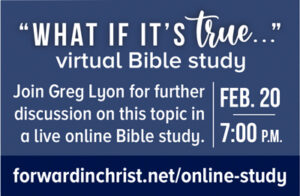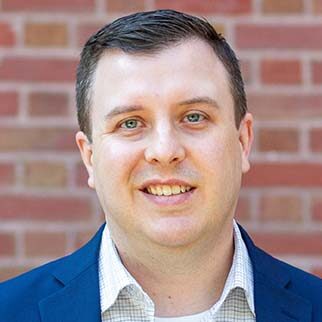 |
I’ve always heard people say, “All sin is the same.” That phrase has often given me pause, not because I disagreed with it but because my eyes told a different story.

The longer I have lived, the more I saw just how horrible human beings could be. I grew to learn more about the atrocities of the Holocaust. I watched with rapt attention when the airplanes flew into the World Trade Center. I watched the Oklahoma City bombings on TV and then visited the memorial. I have watched the news and seen yet another school shooting. I have started to run out of prayers to say that do not include the words, “Lord, again we see . . .” The evil that surrounds us has almost become horrifyingly normal. All sin is the same? Little Johnny stole Suzy’s pencil. Billy got into a fight with Timmy. Maria said some really horrible things about Liz. These can’t be the same as the listed atrocities. I know the phrase “all sin is the same,” but it sure doesn’t seem that way.
Is sin just a behavior?
So what are we to make of this phrase? Is it true? Let’s think first about how we define sin. Is sin only an action? So often it seems that we focus on sin only as an action. This mindset leads us to ask questions like “How far is too far? If I do this, have I sinned versus if I do that?” We start to draw lines in the sand that we ought not cross.
Certainly, those lines are appropriate. God’s law, written in our hearts and written in the Word, is a curb to keep us on the right path. So, we know that murder is sin, adultery is sin, coveting is sin, and so on. We know we do sinful things.
But if sinful actions are our only understanding of sin, then we have but one solution for our sin problem: Stop doing the sin. When we stop doing the sin, then we are good, right? When sin is just understood as an action, then I can compare my actions to the atrocities mentioned before and say, “My sin is objectively not as bad as that sin.” If sin is understood only as an action, then I quickly can find a way to justify myself and push my need for a Savior right out the door.
Sin is a condition
But as this Lenten season begins, we are confronted with a reality. We don’t just do sin. We are sinful. You see, sin is not just a behavior; sin is a condition. Like a disease that cannot be treated without care from outside yourself, your sinful condition remains your constant companion.
Avoiding sinful behavior is what we ought to be doing, but avoiding sinful behavior does not justify us before God. The Pharisees tried that, and Jesus had some stern words for them: “Woe to you, teachers of the law and Pharisees, you hypocrites! You are like whitewashed tombs, which look beautiful on the outside but on the inside are full of the bones of the dead and everything unclean. In the same way, on the outside you appear to people as righteous but on the inside you are full of hypocrisy and wickedness” (Matthew 23:27,28).
Beginning in the early third century, a group of ascetics called the Desert Fathers removed themselves from the vices common to people. They thought that by removing themselves from sinful temptations, they could perhaps avoid sin altogether. But they, and we, must remember that sin follows us whether or not the physical temptations are there. This drives our deep need for a Savior, not just a teacher who can guide us into avoiding sin.
The truth is, most of us are not capable of committing the atrocities of the Holocaust. Why? Because we aren’t dictators. However, the temptations before us present the sins we are capable of committing because that same sinful nature dwells in us. The sin you struggle with may look vastly different from the sin of the person on the news or the person who does not share your same moral values. Your temptations and behaviors are different, but your sinful nature is the same. That leads you to cry out, “Lord, have mercy on me, a sinner.”
As you are reminded this Lenten season of your sinful condition and the sinful behaviors that flow from it (Matthew 15:19), see your own sin and marvel at the amazing act of love that Jesus would give his life . . . even for you, a sinner.
What is sin?
We can understand sin in two ways: original sin and actual sin.
Prof. Daniel Deutschlander explained original sin this way: “Original sin is not an act or a deed performed but a deep-seated, thorough-going tendency to evil; it consists of the total loss of innate holiness and righteousness; then the corruption of the remaining natural abilities of the soul in its emotions, will, and reason; and finally the loss of immortality” (Grace Abounds, p. 207).
But what about actual sin? Deutschlander wrote, “Unlike original sin, which is sin that we have rather than sin that we commit, actual sin is any breaking of God’s law. It matters not . . . whether the breaking of the law was conscious or unconscious, intentional or unintentional, a failure to do what was commanded or a doing of what was forbidden. Every breaking of God’s law is by definition sin” (Grace Abounds, p. 209).
This We Believe
What do we believe about humankind being sinners? These statements of belief are from This We Believe, a public summary of the main teachings of the Wisconsin Evangelical Lutheran Synod.
II. Creation, Man, and Sin.
5. We believe that Adam and Eve lost their divine image when they yielded to the temptation of Satan and disobeyed God’s command. This brought upon them the judgment of God: “You will surely die” (Genesis 2:17). Since that time all people are conceived and born in a sinful condition (Psalm 51:5) and are inclined only to evil (Genesis 8:21). “Flesh gives birth to flesh” (John 3:6). Since all people are by nature dead in sin and separated from God (Ephesians 2:1), they are unable to reconcile themselves to God by their own efforts and deeds.
Read more at wels.net/this-we-believe.
Learn more by registering for “What if it’s true. . .”, a virtual Forward in Christ Bible study led by Pastor Lyon. More information is available at forwardinchrist.net/online-study.
Author: Gregory Lyon
Volume 111, Number 2
Issue: February 2024






